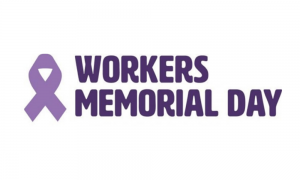
Amma Asante MBE trained in Dance and Drama at the Barbara Speake Stage School, beginning her TV and film career as a child actress with regular appearances in the school drama, Grange Hill. She later founded a production company, Tantrum Films where she made her directing debut with a feature film, A Way of Life, released in 2004 and winning several awards including the BAFTA’s Carl Foreman Award.
As early as 2005, Amma Asante was emerging as the ‘next big thing’ in British Film. The Times in 2005 described Amma as ‘one of the most exciting prospects in British cinema to emerge in the past 12 months’.
https://www.thetimes.co.uk/article/times-south-bank-show-breakthrough-award-nominees-rmfzpcwtlwz
Amma’s film projects have spanned both the UK and the US where her second feature film, Belle (2013), received much critical acclaim. Amma later went on to direct the feature film titled A United Kingdom, making history by becoming the first black film director to open the 60th BFI London Film Festival. In 2017 Amma was awarded an MBE for her services to film. Her latest directed film was Where Hands Touch in 2018.
In an interview with Refinery29 in 2016, Amma highlighted the importance of representation at an early age. She talked about her journey starting as a 10-year-old child and her inspirations as she was growing up, saying “It was popular culture. It was Soul II Soul; it was Young Soul Rebels. It was a generation of first generationers who were taking the black British experience and impressing it on the arts. That’s how I saw my identity reflected back at me. That’s why cinema, music, all of those things, are so important. Because what we were doing previously was looking to America. Of course, we have massive overlaps, there’s no doubt about that. But being black and British is a completely unique experience in many ways”.
https://www.refinery29.com/en-gb/2016/10/125282/amma-asante-interview-a-united-kingdom
With the powerful Black Lives Matter movement that has made the world stand up and take notice, Amma expressed in an interview with the Big Issue how the fight against racism is far from over and we all as individuals and organisations must continue to educate ourselves to fight against the more “underhanded” racism that plagues our society.
She stated: “We live in a world where racism has become more overt but what that overt racism is doing is hiding a racism and a prejudice that has existed all along, which is much more underhanded, low key and pervasive. It becomes harder to challenge because it’s covered by political correctness and polite language. The fact you might not feel comfortable with something on the screen doesn’t mean it should be shut down”.
Aratrust passionately welcomes the Open Letter from Black, Brown and Asian Creatives calling on the UK Film and TV industry for their ‘active engagement’ in tackling ‘structural and systemic racism in our industry, in the UK and around the world’. The letter is signed by some of the biggest minority-ethnic producers, actors and directors including Idris Elba, Amma Asante and Asif Kapadia.
https://docs.google.com/document/d/1VmnHoTjSZu5EZKy3fi00JOVQ2L5Ogd2yGa_x5MK12jI/edit
(Printed below)
Aratrust whole-heartedly supports the outlined proposals for change to the UK TV and Film Industry that include “banishing weak excuses, empowering more Black and Brown independent producers; expanding your vision; and being more demanding”.
The Open Letter also draws attention to the need for positive action now as it illustrates that only 5% of the producers supported by the BFI in 2018/19 were ‘people of colour’ The letter calls for more minority-ethnic producers and directors to be empowered and supported hoping that this will have a positive diversity effect on not only the various roles and diversity of the senior management teams of organisations within the Film and TV space but the trickling down effect to influence change and diversity schemes within other industries and professions.
The letter ends with a vital message: ‘This moment in history presents an opportunity for you to be a positive partner for change’. In the words of Amma Asante “This is an opportunity to challenge the Status Quo. I think that it’s not lost on me, let’s put it that way, that I’m a woman who is Black who is telling a story in an arena where we previously haven’t had space as directors. And this has been an area that has been the white male’s area to tell these stories’.
BGN Interview: Filmmaker Amma Asante
Aratrust says: If you want to find out what systemic racism looks like in the British film and TV industry then read this powerful incisive diagnosis signed by over 5,000 Black creatives.
The Open Letter from Black, Brown and Asian Creatives signed by over 3,500 creatives
21 June 2020
Dear UK Film and TV Industry,
Having been inspired by the Black Film Collective who put together a powerful open letter to Hollywood last week on behalf of many brothers and sisters in the industry, we would like to send you something in collaboration with them, which we feel addresses our continuing issues with the UK industry.
This letter is from your colleagues in the UK – Black and Brown (inc. all Asians) independent producers, for change. As one extended community, we require your active engagement to tackle structural and systemic racism in our industry, in the UK and around the world.
While messages condemning racism and advocating for solidarity on social media may inspire hope, the UK Industry must put its money and practices where its mouth is. A direct line can be drawn from the stories and voices that are silenced and ignored, to the discrimination and biases that are pervasive in the entertainment industry and larger society. This moment in history presents an opportunity for you to be a positive partner for change.
Our aim is that this letter produces strategic commitments from you to reshape our industry into one whose words are supported by action. Toward that end:
1. Banish “Your Weak Excuses”
Banish “it’s too small” from your lexicon. It is insulting to our stories, our history, our impact on world culture, and our worth. Our stories are referred to as “too small” because they do not centre around white characters or a small subset of actors whom you deem valuable; they are not always written by the same white writers that you deem to be “safe”. Banish “we already have a diverse project on our slate”. There is room for more than one. You make countless projects with similar themes and storylines with white creatives. Banish “that feels risky”. We know we are introducing you to new unproven talent, but why is the same white man (who has made a string of flops after his one hit 10 years ago) still deemed less risky than a new brown or black writer with original and well written ideas. We know that many of our stories feel unfamiliar to you because they go against your preconceived notions of us and make you step outside your familiar world. But they are familiar to us. Hire us and together let us tell truthful, bold and imaginative stories from rich new perspectives. There are countless men and women in the streets right now, putting their lives, health, and livelihoods on the line, fighting for an end to systemic racism. There will be no end until financiers, distributors and the community of decision-makers cease this practice of marginalising our voices and our stories. If Black lives matter to you, our stories and the scale on which they are marketed and distributed must as well.
2. Empower Black and Brown Independent Producers
Hiring Black and Brown writers and directors is of course of great importance, but rarely is this opportunity given to Black and Brown independent producers. Only 5% of the producers supported by the BFI in 2018/19 were producers of colour. This is especially troubling because producers often work with multiple writers and directors. Supporting one producer effectively supports many Black and Brown professionals above and below the line. Take a deeper look at the community of Black and Brown independent producers, working hand in hand with talented directors. Many have compelling slates of projects in need of willing partners. There hasn’t been a Black/Brown producer on Variety’s “10 Producers to Watch” list since 2017. We don’t mean to point the finger solely at Variety, because similar lists are printed in various trades. In addition, they all seek recommendations from agencies, management companies, and elite publicists. So this incredibly valuable publicity is often limited to advancing the careers of those who need publicity the least. Empower those that need it the most.
3. Expand Your Vision
Think outside the box when looking for new talent. There are numerous diversity schemes out there, which is a good start and we support them all. But we need more sustained endorsement. Empower those that come through those schemes.
Let us look at making sure those graduates stay in the industry and are nurtured and promoted so that they become the decision makers and help create change. Until we are in positions of power nothing will really change.
4. Be More Demanding
Actors, managers and agents must become more demanding about the teams behind the camera. If there are no Black producers, no Brown DOPs, no diverse department heads, you must speak up and challenge. To agents, be proactive in asking on behalf of your clients. Look at your rosters too. Who do you represent? How diverse are they? Without your vocal support, we will continue to be largely shut out of this industry and it is not for lack of excellence. It is for lack of will on the part of producers, network executives and studio heads. It is that simple.
We challenge you to become willing partners in this crucial endeavour. If the full spectrum of our experiences are not produced, marketed and celebrated with some regularity then you are actively denying our humanity and our history. Our stories and experiences can no longer be limited to being backdrops for white narratives and protagonists. Until we are able to show our FULL joy, grief, fear, history, pride and all the other myriad of emotions and experiences, then you are simply upholding the status quo and enabling a society that keeps white people comfortable in their racism and Black and Brown people perpetually dehumanised. Until we are allowed to make mistakes and try again like many of our white counterparts, we will never succeed in the same way. You are a large part of the problem and it is time to be honest about it. For far too long, the images on our screens have projected lies and partial truths when it comes to our lives and history, minimising our perceived value and creating ripple effects throughout society.
This letter is in defence of all Black and Brown creative artists and the communities they come from. It is in defence of the millions of lives that have gone unrecorded. It is in defence of George Floyd, Breonna Taylor, Belly Mujinga, Trayvon Martin, Stephen Lawrence, Zahid Mubarek, Mark Duggan, Sarah Reed, the black and brown health professionals who have died from Covid -19, and so many other lives senselessly and tragically cut short.
Your messages in support of Black Lives Matter are a first step. But after decades of enabling racism in your ranks and beyond, it is time to do more. If Black lives really matter to you, our stories must as well. Please help us tell the whole truth. Black and Brown lives all over the world depend on it.


